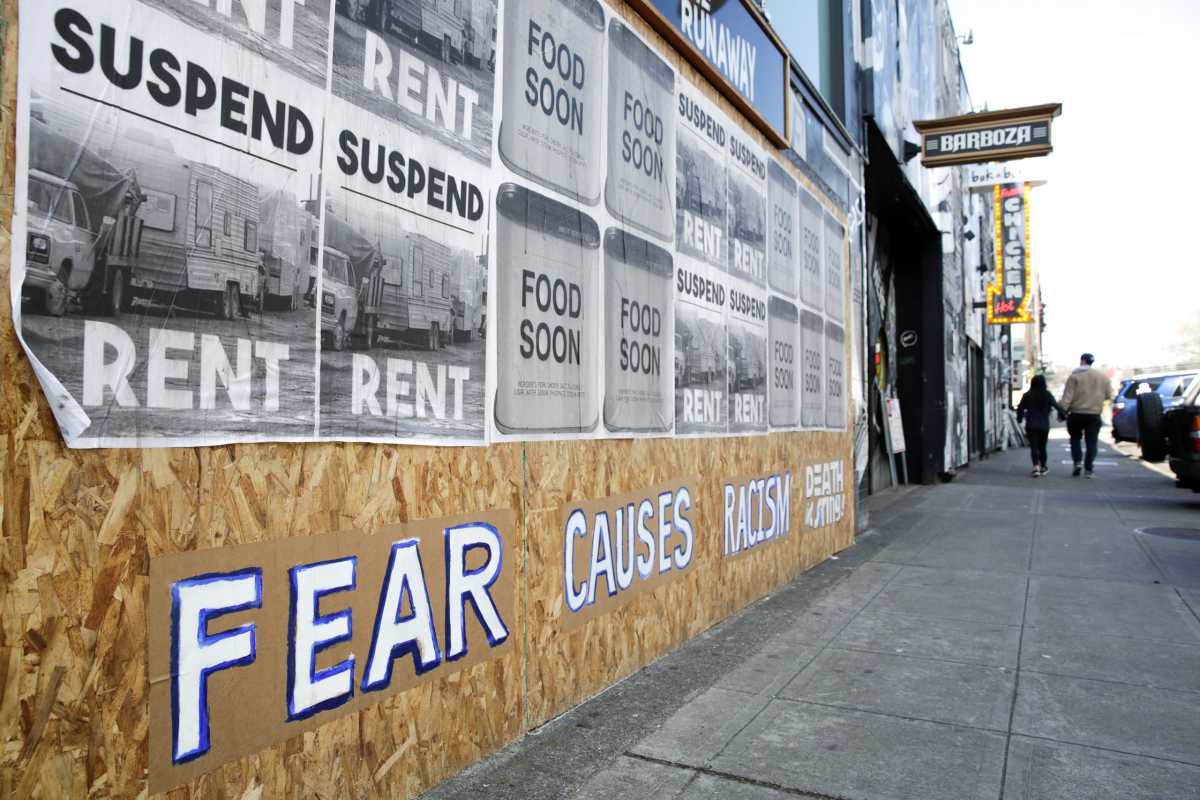BY JOSEPH AX AND DANIEL TROTTA
New York hair stylist Vanessa Karim has not worked since March 21, when the state closed all salons to slow the spread of the coronavirus. She only has enough cash on hand to cover half of her $1,400 April rent.
“It all feels like a bad dream,” said Karim, 36, who planned to ask her landlord if he would be willing to accept a partial payment. “Every day I’m like, ‘Is this really happening?’ I’m trying not to stress out.”
As the pandemic wreaks havoc on the U.S. economy and transforms Americans’ daily lives, the start of April brings a moment of reckoning for millions: rent checks are due.
Many Americans have already lost their jobs – last week’s national unemployment claims exceeded 3 million, shattering previous records – and huge swaths of the country have essentially shut down, with more than half of U.S. states now under some version of a stay-at-home order to curb the disease’s spread.
One third of the nation’s 328 million residents live in rental homes, according to U.S. Census data. In New York City, the epicenter of the U.S. outbreak, the proportion of those who rent is much higher.
Some states have instituted a moratorium on residential evictions. Housing advocates, however, have called for more dramatic action, including putting rent payments on hold altogether until the economy can restart.
Alfa Cristina Morales, 21, lost her job as a line cook at an Oakland, California, coffee shop, along with her health insurance, three weeks ago.
Now she has been forced to take the money she had saved for a U.S. citizenship application and use it to pay bills, including her April rent. She is not sure how she and her 2-year-old son will make it through May. She has applied for unemployment benefits, which could take weeks to arrive.
“We’re worried that it won’t be enough,” she said.
NEW JOB TO NO JOB
In some cases, landlords – who often rely on rental payments for their own financial survival – have been willing to accommodate tenants damaged by the economic fallout.
Megan Cornelius and her husband, Adam, moved to a bigger apartment in New York’s Brooklyn borough less than two months ago, just as she was landing a new job at a digital sports network.
She was laid off after barely a month, while Adam is between jobs in the hard-hit restaurant industry.
“There’s no point in even trying to find a job now,” he said.
With no income, the couple prevailed upon their landlord to defer rent payments until one of them can find employment. To their relief, she granted the request immediately.
“We went from ‘How are we going to survive?’ to ‘This will be fine, we’re going to make it through,'” Adam Cornelius said.
Others have found creative ways of making the rent. Ryan Henry Ward, an artist whose murals appear all over Seattle, saw his normally busy spring season screech to a halt as the pandemic shut down schools, restaurants and shops.
He wrote his landlord a letter explaining his situation. His landlord replied with a proposition: create some murals for his properties, and Ward would receive monthly payments.
“When he let me know, I cried. I just bawled. I didn’t know I was holding it in,” said Ward, 44, who has also set up a mural-for-food arrangement with a restaurant.
It’s not just home renters who are worried. Jenny and Steve Nugent, who run Flanagan’s Harp & Fiddle, an Irish pub in Bethesda, Maryland, were planning to inform their landlord on Tuesday they would be unable to pay their $14,000 April rent.
Since their doors shut a day before St. Patrick’s Day, they have lost an estimated $70,000 in revenue, Jenny Nugent said. The bar is scraping by on takeout orders, which is enough to pay a dishwasher and a cook and cover some basic expenses – but the rent is too much.
“It’s either pay the rent or make payroll,” she said.
The restaurant is also selling a couple of coronavirus-themed T-shirts, including one that says, ‘Social distancing?’ – showing a figure sprinting away from his landlord.



































